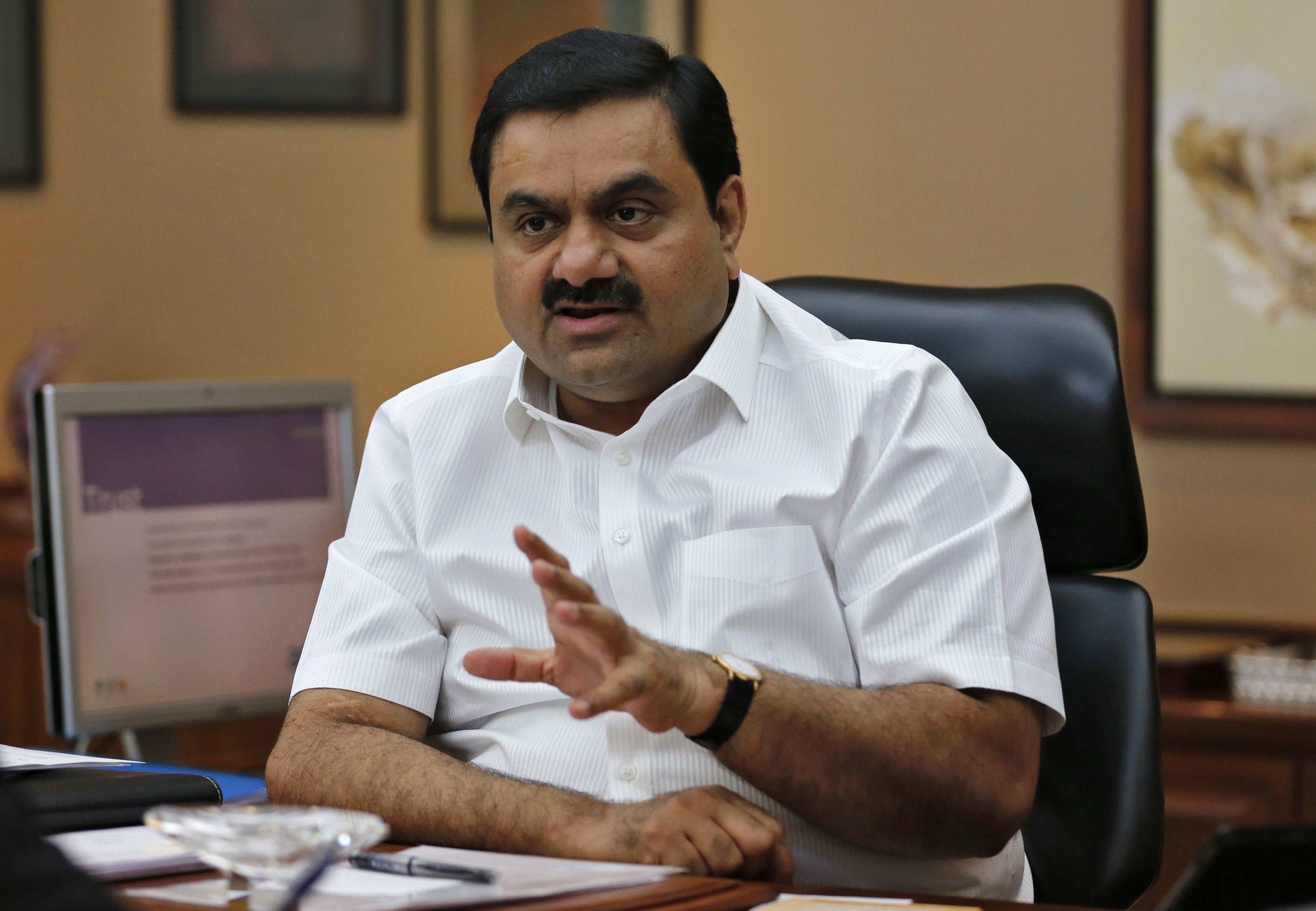
Millions of dollars were invested in some publicly traded stocks of India’s Adani Group via “opaque” Mauritius funds that “obscured” involvement of alleged business partners of the Adani family, a global network of investigative journalists says in a report.
Citing a review of files from multiple tax havens and internal Adani Group emails, the Organised Crime and Corruption Reporting Project (OCCRP) said on Thursday that two individual investors – Nasser Ali Shaban Ahli from Dubai and Chang Chung-Ling from Taiwan – with “longtime business ties” to the Adani family used such offshore structures to buy and sell Adani shares.
The nonprofit OCCRP released its report after the United States-based short-seller Hindenburg Research in January accused the Adani Group, controlled by billionaire Gautam Adani, of improper business dealings.
Adani, who was the third-richest man in the world before the Hindenburg scandal erupted, is reported to have close links with Indian Prime Minister Narendra Modi and his ruling Bharatiya Janata Party (BJP).
Al Jazeera has not independently verified the OCCRP’s assertions.
What is Adani accused of?
At the peak of their investment in June 2016, Ahli and Chang held free-floating shares of four Adani Group units – Adani Power, Adani Enterprises, Adani Ports and Adani Transmissions – ranging from 8 percent to about 14 percent stakes in the companies through two Mauritius-based funds, the OCCRP report said.
At one point, their investment in Adani funds was worth $430m, it said.
Under Indian laws, every company needs to have 25 percent of its shares held by public shareholders to avoid price manipulation.
While the OCCRP said there was no evidence that Chang and Ahli’s money for their investments came from the Adani family, its reporting and documents – including an agreement, corporate records and an email – showed there “is evidence” that their trading in Adani stock “was coordinated with the family”.
Both men — Nasser Ali Shaban Ahli of the UAE and Chang Chung-Ling of Taiwan — are widely known to have longstanding ties to a senior member of the Adani family. They've even been directors and shareholders in affiliated companies.
— Organized Crime and Corruption Reporting Project (@OCCRP) August 30, 2023
It said Ahli and Chang were associated with companies of the group as well as with Vinod Adani, who is Gautam Adani’s brother.
“The question of whether this arrangement is a violation of the law rests on whether Ahli and Chang should be considered to be acting on behalf of Adani ‘promoters,’ a term used in India to refer to the majority owners of a business,” the OCCRP said.
If so, the OCCRP said, the stake of promoters in Adani holdings would exceed the 75 percent limit allowed for insider ownership.
How has Adani reacted?
The Adani Group said it “categorically” rejects what it called recycled allegations “in their entirety”, accusing the OCCRP of seeking to profit by “driving down our stock prices”.
“We have complete faith in the due process of law and remain confident of the quality of our disclosures and corporate governance standards,” the group said in a statement.
“In light of these facts, the timing of these news reports is suspicious, mischievous and malicious.”
In a statement to the OCCRP, the Adani Group said the Mauritius funds investigated by reporters had already been named in the Hindenburg report and the “allegations are not only baseless and unsubstantiated but are rehashed from Hindenburg’s allegations”.
Meanwhile, the OCCRP report pushed down shares of Adani Group companies on Thursday and revived corporate governance concerns.
Shares of Adani Enterprises, the flagship company of the group, fell 3.5 percent, while Adani Ports, Adani Power, Adani Green, Adani Total Gas and Adani Wilmar slid between 2 percent and 4.5 percent each.
“If [the allegations are] true, it could mean a violation of Indian financial market regulator SEBI laws for publicly listed stocks. That could sway the outcome or push SEBI to dig deeper in its ongoing investigation into the group,” CreditiSights senior research analyst Lakshmanan R said.
SEBI is the Securities and Exchange Board of India, the government agency that regulates the stock market and protects the interests of investors.
Since the Hindenburg report in January, Adani group stocks have lost $150bn in market value and remain down around $100bn following a recovery in recent months after it repaid some debt and regained some investor confidence.
What did Hindenburg say?
In a post on the social media platform X, Hindenburg said the OCCRP report “validated” issues it had flagged about offshore funds owning at least 13 percent of the public float in multiple Adani stocks through “associates of Vinod Adani”.
Finally, the loop is closed.
The Financial Times and OCCRP report that offshore funds owning at least 13% of the free float in multiple Adani stocks were secretly controlled by associates of Vinod Adani, masking the relationship with 2 sets of books. https://t.co/L4clFVpA2K pic.twitter.com/ofWf6KQK5h
— Hindenburg Research (@HindenburgRes) August 30, 2023
Adani Group had called Hindenburg’s January claims misleading and without evidence and said it always complied with laws.
India’s Supreme Court has appointed a panel to oversee a SEBI probe based on the Hindenburg report. The panel in May said the regulator had so far “drawn a blank” in investigations into the suspected violations.
Last week, SEBI said its report was nearing completion and its investigation on some offshore deals was taking time because some entities were located in tax haven jurisdictions. The regulator “shall take appropriate action based on outcome of the investigations”, it said.




.jpg?w=600)


